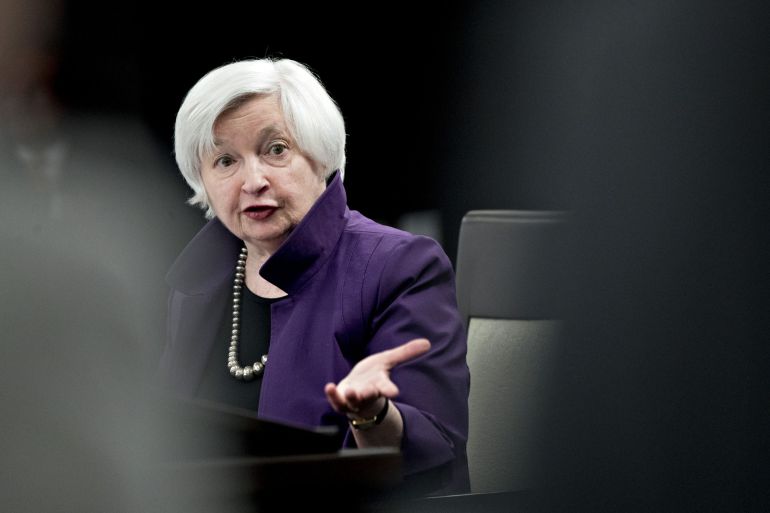US Treasury proposes 15 percent global minimum corporate tax rate
The Biden administration hopes the move will end competition to lure companies to countries with low tax rates, which ends up eroding government coffers.

The U.S. has proposed that countries agree to a 15% global minimum corporate tax in international negotiations aimed at ending competition to lure companies through cheap rates, which then end up eroding government revenues.
“It is imperative to work multilaterally to end the pressures of corporate tax competition and corporate tax base erosion,” the Treasury Department said in a statement Thursday. “Treasury underscored that 15% is a floor and that discussions should continue to be ambitious and push that rate higher.”
Keep reading
list of 4 itemsHere’s how much Joe Biden and Kamala Harris paid in taxes
Amazon wins $300M EU court battle over back taxes
Will raising the US capital gains tax help tackle inequality?
The offer, which came in talks held this week, moves the U.S. position closer to the 12.5% rate that had been discussed at the Organization for Economic Cooperation and Development prior to the U.S. re-engaging in the negotiations following Joe Biden’s election as president. The American move could help provide additional momentum to reach a deal in the summer, as the OECD has been aiming for.
Some lower-tax countries — such as Ireland, with a 12.5% corporate rate — had been skeptical of the 21% rate that the Biden administration had previously proposed for global income earned by U.S. companies. British officials have also worried that the rate was too high for the long term — even though the U.K. intends to raise its corporation tax to 25% in 2023 to replenish public finances after the pandemic.
The Biden administration is trying to influence other countries in the OECD talks to agree to a rate closer to what the U.S. might have, so there’s less of a mismatch. The Treasury has prioritized a global minimum tax both in its proposals for overhauling the U.S. international tax rules, and in the OECD negotiations.
New Framework
The U.S. released a framework for the revamp of the global system in early April, effectively restarting the talks with roughly 140 countries after the Trump administration withdrew from the negotiations.
The American proposals have also set an objective of ensuring that the world’s 100 or so biggest companies pay more in places where they actually do business. While questions remain over the enforceability of such a move, the dispute resolution and how poorer economies could benefit, the broader initiative re-injects momentum into a process that nearly sparked a trade war in the era of former President Donald Trump.
Treasury Secretary Janet Yellen’s approach has prompted a warmer reception from larger countries whose Treasury coffers have the most to gain by capturing revenue from global companies operating in lucrative domestic markets. France was among those endorsing the U.S. moves. Other nations that earn money from hosting multinationals have reservations.
On the domestic front, Biden has proposed boosting the corporate tax rate to 28%, from 21%. The idea has been universally panned by Republicans and many business groups — who say it would make the U.S. less competitive, while key moderate Democratic Senator Joe Manchin has called for a smaller hike.
According to the OECD, changes to how taxing rights are allocated could redistribute around $100 billion, while the minimum-tax pillar, combined with existing U.S. rules, would boost global revenues for governments by as much as $100 billion a year.